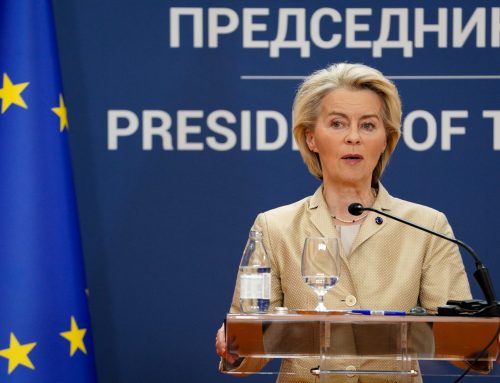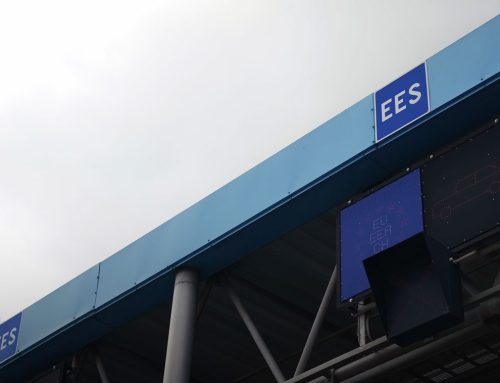I will never forget the scenes of the floods across Serbia, Bosnia and Herzegovina, and Croatia: a deluge of rain of truly Biblical proportions which within a matter of hours wrought the greatest damage there since the region’s terrible wars of the 1990s. Now back from my visit to the region, my heart is full of sorrow for the people who have lost relatives, homes and livelihoods, but also admiration for the courage and kindness they have shown over the last week – and a strong determination to mobilise more help for the thousands of people who need it.
– Kristalina Georgieva, European Commissioner for International Cooperation, Humanitarian Aid and Crisis Response
It was in the north of Bosnia and Herzegovina that an old woman made me feel the enormity of this tragedy: for her and for so many others this is a crisis erupting right where the wounds of war are still healing. She was evacuated from her home and like most of the people sheltered in the Oraje high school she had already lost her home once to the war, and now she has lost it again. “All I want is to die on the land where I was born”, she told me. “But alone I won’t be able to reclaim it from the water”.
I hugged her – and told her she was not alone. “Niste sami”: this was the message I wanted to deliver to her and to the thousands of people overwhelmed by the worst floodwaters in more than 120 years.
The day after the floods started the EU began one of the largest scale emergency operations in its history. From our Emergency Response Coordination Centre in Brussels we streamlined the delivery of assistance on many fronts and levels: some 500 rescuers from 22 of our member States have arrived in the crisis zone, with helicopters, rescue boats, pumps and other specialised equipment. In Serbia, in Obrenovac, a town of 15,000 people, I saw Slovenian teams doing a heroic job of protecting with pumps the Nikola Tesla power station, which supplies more than half of Serbia’s electricity. In Bosnia and Herzegovina helicopters were being used to reinforce a broken dam wall at Vucilovac, Brcko, by dropping cement on the breach, while German, French and Czech teams with high volume pumps kept fighting the water in nearby villages. And Croatia, itself affected by the floods, has come to the rescue of people in both countries – an amazing show of solidarity.
The needs remain huge right now in every way imaginable. The water is slow to retreat and this means that fighting the floods with high volume pumps remains a top priority. But for millions of affected people, more than 500,000 of them evacuated from their houses, there are also humanitarian needs. People need reliable supplies of clean water as well as food, shelter and medicines.
Because of fast-rising temperatures, the carcasses of dead livestock scattered across vast areas are rapidly becoming a major health hazard, as well as the contamination of drinking water supplies with sewage. Swarms of mosquitos, rodents and even snakes are adding to the health risks. In Bosnia and Herzegovina the floods caused thousands of landslides which have swallowed houses and roads. Large quantities of land mines and unexploded ordnance – a legacy of the war – add to the risks and greatly complicate the relief and recovery efforts.
It will take time to recover but I am convinced that this crisis has brought us all more closely together and I pray that this positive energy won’t dissipate, that something good will come out of so much pain and heartache. In fact it was Vesna Pusic, Croatia’s Foreign Minister and First Deputy Prime Minister, who put her finger on it when she told me:”It’s going around, people are saying ‘The war drew us all apart but this crisis is drawing us all back together’.
And it is this strong sense of camaraderie in the region and right across Europe which we must retain for the future. We all live in a world of more frequent and devastating disasters and we can only face them together. “Niste sami”, in a world of more frequent and devastating disasters everyone needs to know that you are not alone.



